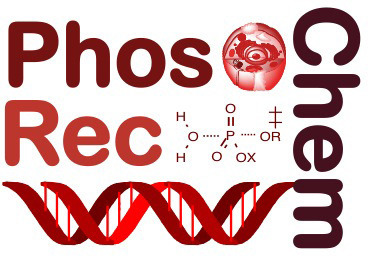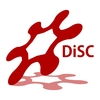International projects
Since the founding of DiSC, several European projects (ERC, collaborative research projects and Marie Curie networks) have been dedicated to the study of chemical systems for energy, catalysis and nanomedicine.
PAPETS
"Phonon-Assisted Processes for Energy Tranfer and Sensing"
Project acronym : PAPETS
Type of funding scheme: Collaborative project
Call identifier: FP7-ICT-2013-C
Name of the coordinating persons: Dr. Yasser Omar
Institution: Instituto de Telecomunicações, Universidade Técnica de Lisboa, Lisbon, Portugal
Name of the local Coordinator: Dr. Elisabetta Collini
There is mounting experimental and theoretical evidence that suggests that coherent coupling of electronic processes to specific vibrational dynamics is essential to selectively drive physiological processes. This project addresses this newly emerging frontier between biology and quantum physics by aiming to determine the role of coherent vibrational dynamics in the efficiency of energy storage in natural and artificial light harvesting systems, as well as in odour recognition. Although these are at first sight two very different biological processes, in both cases their effectiveness is now believed to rely on phonon-assisted mechanisms. In fact, more generally, it is becoming increasingly clear that vibrational dynamics plays a key role in establishing the fundamental connection between structure and function of protein complexes.
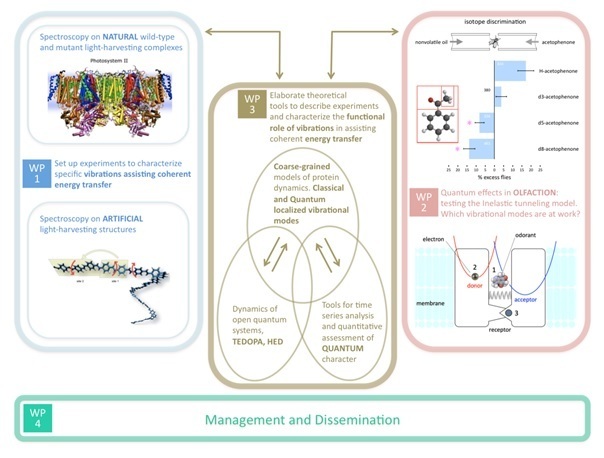
DECORE
"Direct ElectroChemical Oxidation Reaction of Ethanol: optimization of the catalyst/support assembly for high temperature operation" (DECORE)
Project acronym : DECORE
Type of funding scheme: Collaborative project
Call identifier: FP7-NMP-2011-SMALL-5
http://decore.eucoord.com/home/body.pe
Name of the coordinating persons: Prof. Gaetano Granozzi
Institution: University of Padua
Work programme topics addressed: NMP.2012.1.1-1: Rational design of nano-catalysts for sustainable energy production based on fundamental understanding
Abstract
The main general goal of DECORE is to achieve the fundamental knowledge needed for the development of a fuel cell (FC) electrode, which can operate efficiently (both in terms of activity and selectivity) as the anode of a direct ethanol (EOH) FC (DEFC) in the temperature range between 150-200 °C (intermediate-T). Such a technology is still lacking in the market. The choice for EOH as an alternative energy source is well founded on the abundance of bioethanol, and on the relatively simpler storage and use with respect to other energy carriers. The intermediate-T is required for an efficient and selective total conversion of EOH to CO2, so exploiting the maximum number of electrons in the DEFC. DECORE will explore the use of fully innovative supports (based on titanium oxycarbide, TiOxCy) and nano-catalysts (based on group 6 metal carbides, MCx, M=Mo,W), which have never been tested in literature as anodes for DEFCs. The new support is expected to be more durable than standard carbon supports at the targeted temperature. The innovative nano-catalysts would be noble-metal free, so reducing Europe’s reliance on imported precious metals. To tailor the needed materials, the active role of the support and nano-catalyst will be studied at atomic level. Demonstrating an activity of such nano-catalyst/support assembly at intermediate-T would open a novel route where DEFCs with strongly reduced production costs would have an impact on a fast industrialisation. The power range for the envisioned application is of the order of hundreds of Watts, i.e. the so called distributed generation, having an impact for devices such as weather stations, medical devices, signal units, auxiliary power units, gas sensors and security cameras. By the end of the project, a bench-top single DEFC operating at intermediate-T will be built and tested.
Consortium:
1(Coordinator) Gaetano Granozzi, University of Padova (UNIPD)
2 Julia Kunze, Technical University of München (TUM)
3 Cristiana Di Valentin, University of Milano-Bicocca (UNIMIB)
4 Matthias Arenz, University of Copenhagen (UCPH)
5 Elena Pastor Tejera, University of Laguna, Tenerife (ULL)
6 Alessandro Lavacchi, CNR(ICCOM)
7 Martin Batzer, Elcomax GmbH (ELCO)
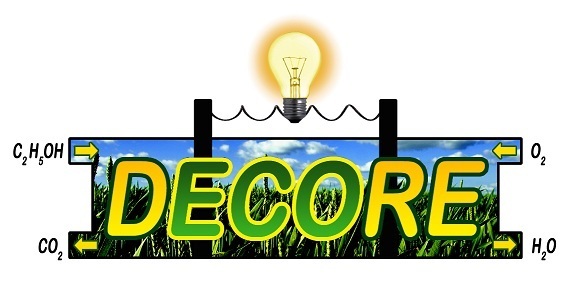
MULTI
"MULTI-valued and parallel molecular logic"
Project acronym : MULTI
Type of funding scheme: Collaborative project
Call identifier: FP7-ICT-2011-8
Name of the coordinating persons: Prof. Françoise Remacle
Institution: Chimie Physique Théorique, Université de Liège, Belgium
Name of the local Coordinator: Dr. Elisabetta Collini
MULTI aims at proposing a new approach to computing at the nanoscale that gives up the notion of the conventional Boolean ‘true-false’ switches. MULTI replaces the familiar sequential model of computation that uses Boolean variables by logic operations that are executed in parallel on devices that have a built-in many state memory and whose inputs and outputs are multivalued. MULTI seeks to design, simulate and experimentally implement proof of principle devices on the atomic and molecular scale.
In MULTI a single atom, molecule or a supra(bio)molecular assembly acts as a logic element. MULTI plans to take advantage of internal degrees of freedom of such atoms or molecules to implement unconventional logic operations by electrical addressing in the solid state and/or by optical addressing in solution.
Benefits of MULTI approach are higher information rates for inputs and outputs, enhanced rates of processing due to parallelism and computing in memory and exploration of continuous logic.
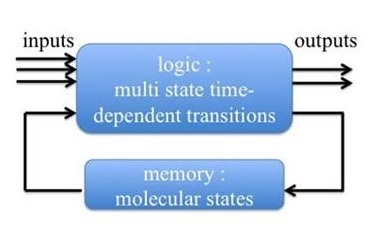
NEXT-GEN-CAT
"Development of NEXT GENeration cost efficient automotive CATalysts"
Project acronym : NEXT-GEN-CAT
Type of funding scheme: Collaborative project
Call identifier: FP7-NMP-2011-SMALL-5
Name of the coordinating persons: Dr. Fotios Katsaros
Institution: NATIONAL CENTER FOR SCIENTIFIC RESEARCH "DEMOKRITOS" Institute of Physical chemistry /Nanomaterials & Membranes
Name of the local Coordinator: Prof. A. Glisenti
The main objective of NEXTGENCAT proposal is the development of novel eco-friendly nano-structured automotive catalysts utilizing transition metal based nanoparticles that can partially or completely replace the Platinum Group Metals. Based on nanotechnology, low cost nanoparticles will be incorporated into different substrates for the development of efficient and inexpensive catalysts.
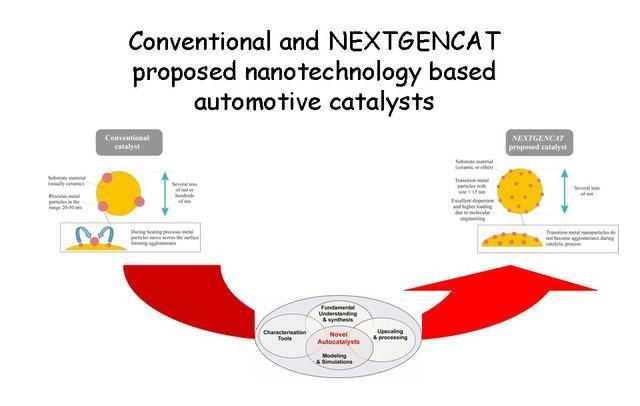
CathCat
"Novel catalyst materials for the cathode side of MEAs suitable for transportation applications"
Project acronym: CathCat
Type of funding scheme: Collaborative Project
Call identifier: FCH-JU-2011-1
Annual Implementation Plan topics addressed: Fourth Annual Implementation Plan of the Fuel Cells and Hydrogen Joint Undertaking (FCH JU)
Name of the coordinating persons: Prof. Dr. Ulrich Stimming
Institution: TechnischeUniversitätMünchen (TUM)
Name of the local Coordinator: Prof. G. Granozzi
Novel low temperature fuel cell (FC) cathode catalyst and support systems will be designed and synthesized. The focus will be on highly active catalyst materials for polymer electrolyte membrane fuel cells (PEMFC) for transportation applications.
These materials will be fully characterized, benchmarked and validated with a multi-scale bottom up approach in order to significantly reduce the amount of precious metal catalyst loadings (< 0.15 g/kW) and to vastly improve fuel cell efficiency and durability.
CathCat combines groups with experimental as well as theoretical fundamental background, researchers from university and institutes with expertise in fundamental Surface Science, as well as applied systems and strong industry partners with long time experience in FC technology.
READ
"Replication and Adaptation in Molecular Networks"
Project acronym: READ
Type of funding scheme: Marie Curie Initial Training Network
Call identifier:
Name of the coordinating persons: Prof. Sijbren Otto
Institution: University of Groningen, Netherlands
Name of the local Coordinator: Prof. Leonard Prins
Systems Chemistry (the chemistry of complex mixtures of interacting molecules) is a rapidly developing new frontier in the chemical sciences. Where chemistry has for centuries been a firmly reductionistic science, Systems Chemistry breaks with this tradition by focussing on complexity and emergent behaviour. These subjects will be developed towards application in enantioselective organoautocatalysis, molecular Boolean logic protocols, self-synthesising materials, and sensing of bio-analytes, among others.

QUENTRHEL
"Quantum-coherent drive of energy transfer along helical structures by polarized light "
Project acronym: QUENTRHEL
Type of funding scheme: ERC- Starting Grant
Call identifier:
Principal investigator: Dr. Elisabetta Collini
QUENTRHEL is aimed to the development of new spectroscopic tools able to unveil the presence and the nature of vibrational modes acting during the energy migration and possibly driving coherent mechanisms of energy transfer in artificial helical systems.
MOSAIC
"MOSAIC: Patterning the surface of monolayer-protected nanoparticles to obtain intelligent nanodevices"
Project acronym: MOSAIC
Type of funding scheme: ERC Starting Grants
Call identifier:
Principal investigator: Prof. Fabrizio Mancin
Functional nanoparticles, where an inorganic nanocluster is stabilized by a monolayer of organic molecules, offer unmatched opportunity to build complex structures with simple building blocks and relatively simple manipulations. The main goal of the MOSAIC project is to gain the ability to hierarchically control the self-assembling of metal nanoparticles coating monolayers using supramolecular interactions and take advantage from such ability to obtain complex function from the materials realized.
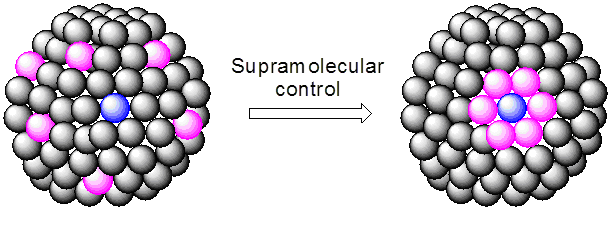
DyCoCa
"Dynamic Covalent Capture: Dynamic Chemistry for Biomolecular Recognition and Catalysis"
Project acronym: DyCoCa
Type of funding scheme: ERC- Starting Grant
Call identifier:
Principal investigator: Prof. Leonard Prins
The objective of this research project is the development of a new methodology for studying and utilizing the noncovalent recognition between two molecular entities, focussing on biomolecular receptors and catalysts.

PhosChemRec
"Recognition and Cleavage of Biological Phosphates.: Molecular Recognition, Mechanism and Biomedical Applications"
Project acronym: PhosChemRec
Type of funding scheme: Marie Curie Initial Training Network
Call identifier:
Name of the coordinating persons: Prof. Florian Hollfelder
Institution: University of Cambridge, UK
Name of the local Coordinator: Prof. P.Scrimin
Research in this network is centred around understanding the central biological process of phosphate transfer and combines experts in synthetic chemistry, enzyme model building, kinetic analysis, protein chemistry and directed evolution in a concerted effort to gain a quantitative understanding of transition states that are key to understanding how biological systems can achieve phosphate transfer with unrivalled efficiency. Efficiency is also key for drugs, prodrugs or drug delivery reagents that target phosphate bonds.
Link: http://www.bioc.cam.ac.uk/~fhlab/PhosChemRec/index.html
